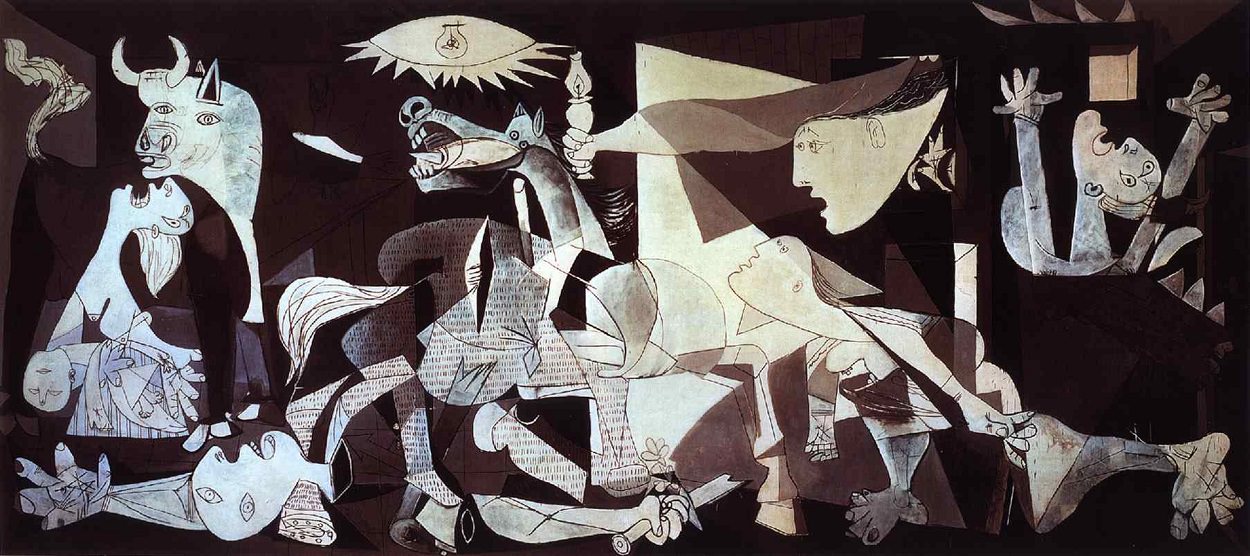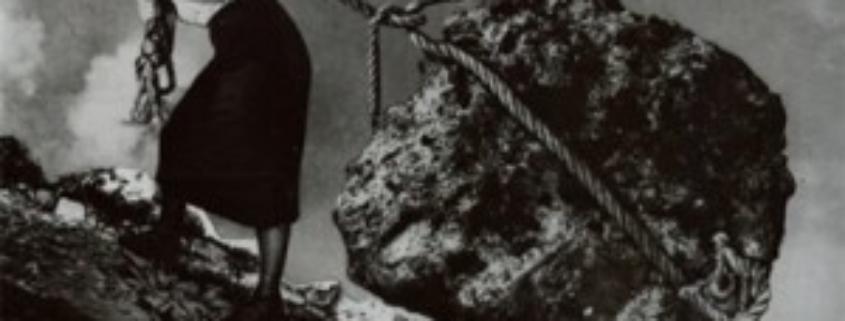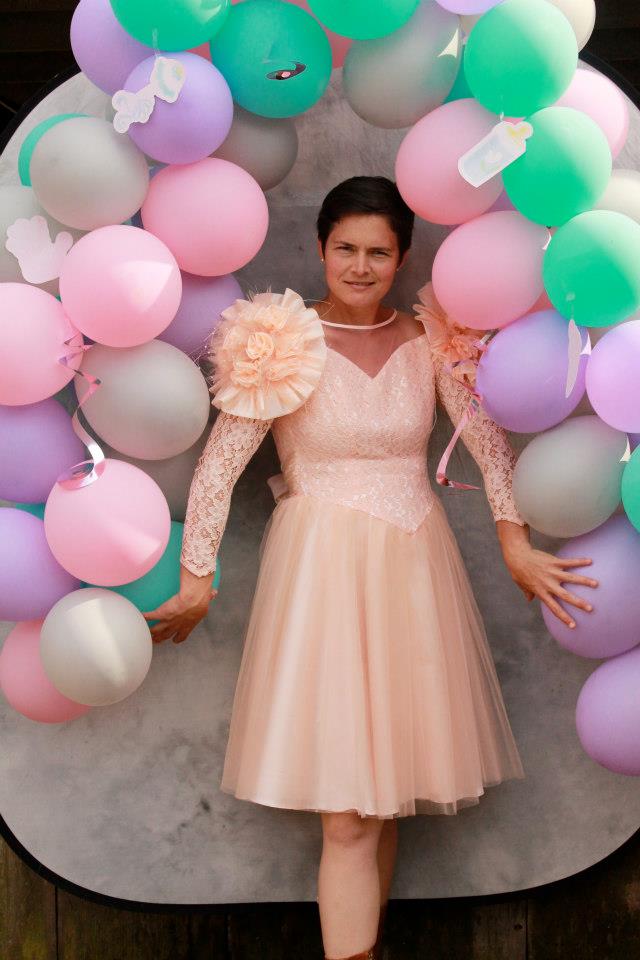Mere Mortals
I had lots of crushes on boys growing up. I might even have loved some. But Señora served me my first real heartbreak. She was my Spanish teacher when I was a senior in high school. She was in her mid-forties, with short blonde hair and smooth, tan skin. She spoke softly, and her bearing was regal, even though mischief sometimes glinted in her blue eyes. She was committed to her job and very clever at it, so we were eager and adoring. She invented tunes to help us remember irregular tenses. Perched cross-legged on a stool, she’d warble verbs at us from behind a big guitar. Señora was the kind of beautiful where, by looking at her too long, you’d start to feel a glare of light that could make you blush and cast your eyes down. I don’t know if there was a single student of hers who could say they didn’t love her a little.
She read us Marquez and Borges and Lorca. Through her I discovered that popcorn in Spanish is palomitas, which means little doves. (Knowing that, who could resist becoming an acolyte?) One day during a lesson on the Spanish Civil War, she shut the lights off in class and projected Picasso’s Guernica onto the wall, which made us tremble. She gave students pet names. She was interested in who we were. Being in Señora’s class, we felt we were in on a great secret. When we walked out into the school, we knew no one felt the way we did, that no one had read what we had read or been changed the way we’d been changed.

Picasso, Pablo. Guernica
When I was sending out college applications, I asked her for a recommendation. I felt confident that she’d write me a strong letter. After all, I worshipped her. She sent sealed letters to the schools and gave a copy to me.
It’s not that she was unkind. The opposite was true, and the letter’s gentleness was what made it unbearable. I don’t have the document anymore. I probably did something an angry teenager does—crumpled or burned it, or tore it up and ate it, but the essential points will be with me until I die. “Mary is not a natural language learner,” she wrote. “It’s difficult for her, but Mary tries very hard.”
I don’t think she would have obliged my request if she didn’t think the letter would be helpful. Still, I was crushed. The way I saw it, Señora was applauding what she saw as my brave perseverance in the face of substantial cognitive deficiencies. It was the epistolary equivalent of a pat on the head. I was sad and embarrassed. I thought I had a talent for Spanish. And I thought talent was a magic that absolved a person of toil.
When I graduated from college five years later, I applied to an MFA program for creative writing. I felt it was my vocation. Language got me high, and I was still coasting on that lofty, cushioned plane of academe. I was good at school. My transcript said so. I wrote a single essay, stuck it in the mail, and did not think to worry. When my application was rejected, I was initially confused. Then I walked to the bathroom of my tiny duplex, turned on the shower, sat down inside it, and cried for a long, long time. It was just like every bad breakup scene from the movies: Here is the unrequited lover, soaked to the bone, with no vase for her flowers.
For ten years I did a lot of random things which amounted to generalized sulking. On a whim about a year and a half ago, I signed up for a writing seminar in Big Sur where Pam Houston was teaching. She read an essay she’d written called Corn Maze, which is a dance of such precision, such periscopic clarity, that it seems superhuman. It was concise and full of soul. I was electrified. I decided to apply to MFA programs again. This disremembering of agony is like what happened after my first childbirth experience. The body forgets that pain just as long as it takes you to be stupid enough to get pregnant again. Then midway through your second 36-hour labor, the memory comes roaring back with all the clarity of an IMAX film. The emotional wilting of ten years past had finally reached critical distance. I submitted applications to five schools. Though I now attribute the result to a series of clerical errors, I was admitted to all of them.
At last, I thought. Through some alchemy of time, bitterness, motherhood, drinking and wandering, I had attained (let’s just say it) genius. The writers—more than one of them—finally saw me, and they loved what they saw. Though too late now to be considered a wunderkind, I had something better: the wisdom of experience. In the rapturous five months before school started, my feet scarcely grazed the ground. I would look in the mirror, blush shyly, and look away. Then look again.
In preparation for the MFA residency, students are asked to submit up to twenty pages of writing that will be workshopped by a small group of peers and a faculty mentor. I hammered out thirteen pages with wild Rachmaninoff zeal and sent them along, feeling whole and indestructible.
When workshop day rolled around, my peers and our faculty mentor each opened a copy of my essay. It’s not that they were unkind. They praised parts of the piece but devoted the majority of our time (days and days, it seemed) to constructive criticism. This part is confusing. Consider restructuring. I need more information here and less over here. At the end, a consolation: It’s just a draft. The horror lay in the fact that they were telling me my essay needed work.
One wonders, what did I expect? We go to school to learn, to be criticized, to improve. But I had come for a high-five. I was there for the rose. I didn’t arrive expecting helpful suggestions because I made my old mistake—I assumed that being admitted to grad school meant that I had a genuine gift. I clung to that inalienable talent like a grail. After the residency, I saw the trophy was as plasticky as a cup plucked from an arcade game.
I quailed then, as I do now. The bliss of being accepted to grad school had derived from a long-awaited affirmation. It was not an anticipatory thrill, but the gratification of a job well done. Unfortunately, the writers I met at the program generally knew more than I did. Worse, they saw problems in my work that I hadn’t seen. This left me to face the devastating prospect of having to work hard. Which, till now, I had been sure was the very opposite of talent.
I did not drop out after the first workshop. I would be lying if I said I am not tempted, at least once a week, to raise my white hanky, to go back to settling for all of my second favorite pastimes, to begging my daughters (they, who love me reliably!) for a hug when they would rather be coloring. I thought about dropping out this morning. No, I haven’t withdrawn yet. But the day is young.
In another class I took six months ago, Pam Houston remarked that she revises a piece fifty times, on average, before it’s finished. The students in the room sucked a loud, collective gasp. I choked a little on my coffee and thought about crying. It seems she sees more than other humans. Yet, she toils like a mortal.
Seventeen years ago, when I was seventeen, Señora said I worked very hard. It turns out it was the best compliment one can receive. It is not enough that I love writing or reading. No matter how fiercely I feel it, no matter how occasionally acrobatic my turns of phrase. It’s not sufficient to buy the bouquet. (Your beloved will not answer their door.) Talent, for what it’s worth, is bound up with stamina. This is a Sisyphean labor of love: There’s nothing to do but keep pushing.
Mary Birnbaum is editor of Lunch Ticket’s Diana Woods Memorial Prize in Nonfiction. She holds an MFA from Antioch. She has contributed to Lunch Ticket and The Week. Mary was the 2018 recipient of Disquiet International’s Nonfiction Fellowship and a finalist for Chattahoochee Review’s Lamar York Prize. She resides in Vista, California with her daughters and husband. If you like, you can find her on Twitter @ailishbirnbaum






